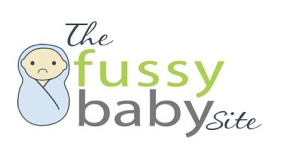- You are here:
- Home »
- Blog »
- High Need Babies »
- Just the Way He Is
Just the Way He Is
When Sam was 4 months old, I remember writing a blog post titled Just the Way He Is on my now-defunct blog. The magical 12-16 week mark had passed, and yet the crying and fussing continued. 
We had been holding onto that marker as the research indicates that colicky behaviour ends or is significantly improved by this point (adjusted age for preemies). And while we no longer had the non-stop, all day crying and screaming, we were left with a fussy, particular, highly-sensitive little boy who needed constant entertainment, carrying, and was still very unpredictable.
It began to become clear to me that we were not dealing with ‘colic’, at least in the way I had understood it. I knew in my gut that the fussing and sensitivity were not going to magically vanish at month 5, 6, 7, etc.
For me, this came with a definite period of grieving. I had already had to grieve the loss of newborn cuddles, cooing, and pretty much any and all positive experiences with my son. And now to try to accept that perhaps this could be his….(I shuddered to think it)…his temperament??
I suggested to a mom this week that her baby’s fussiness may be related to his temperament*, and was met with some resistance. She believes that when a baby cries excessively it is because he or she is in pain and is trying to communicate that discomfort.
Before I had kids, I probably would have taken this view as well, at least to some extent. After having one fussy baby and one high need baby, I strongly believe that excessive crying does not always (or usually) indicate pain.
I do agree that the crying is a form of communication – The only way they have to tell us they need something. It just bothers me when people assume it indicates a medical condition and aren’t willing to explore other options. Options such as the normal infant-arriving-into-world adjustment period, chronic over-tiredness (which can make an already fussy baby even fussier), or even the baby’s temperament.
It’s natural to need to know exactly what’s wrong with our kids. When a baby cries, whether it’s all day or the textbook 3 hours, we have to rule out physical causes. What kind of parents would we be if we didn’t pursue this avenue?
In the same way, once a physical cause has been ruled out, should we continue to look for physical causes or is it acceptable or even necessary to explore other options? I have seen so many parents run themselves ragged trying to find solutions to a supposed physical ailment, that in all likelihood doesn’t exist.
And yet I know that as mothers, we have this primal need to know why, and to know beyond a shadow of a doubt that there is nothing physically wrong with our babies.
I just think we would be better served if there was more education as to the red flags of infant crying. Crying alone does not usually indicate a medical issue.
Only in letting go of the need to know exactly why our baby is crying can we let go of the guilt, and start accepting that this may just be the way our baby is, at least for now. We must look for answers from medical professionals, certainly. In some cases, there is a physical cause. However once a medical issue has been ruled out, it’s time to focus on coping.
How or when did you come to terms with your baby’s temperament? Do you think it’s even possible to see a baby’s temperament as an infant, or does that come later in retrospect? Leave a comment below!
*I only make this suggestion to parents of infants over 3-4 months of age, once the typical pattern of ‘colic crying’ should, in theory, have ended. My completely non-expert opinion is that babies who don’t stop crying after 3-4 months often meet the traits of high need babies, who then later often meet the characteristics of spirited children.
Other Posts You May Like
50+ Best Toys & Products for Spirited Kids, 0-5: Christmas Gift Guide
“Why are You So Tired?”: Here’s Why New Moms Are Walking Zombies
The Fussy Baby Site Goes to Facebook HQ!
How to Raise a Dragon Baby
Stop Crying, Calm Down, and Other Things We Tell Our High Need Kids
